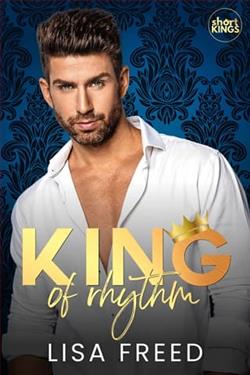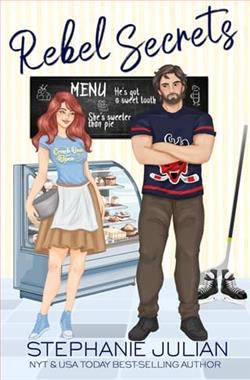Page 64 of Sunrise By the Sea
The furniture and floors of the population who lived nearest the water’s edge . . . well, that was a different matter. Those going up the hill vowed to take the fresh baking to the school house, where the evacuated residents were gathered, Mrs Brady telling once again the story about how she was a real-life evacuee (which indeed she was; she had been sent to Cornwall from London as a four-year-old. By the time the war had ended she was a strapping, dairy-fed nine-year-old with an accent thick as clotted cream who worked the fields with her kind adopted family – who still spoke a few Cornish words – and returned only rarely throughout her life to the East End slum, and the hardscrabble family of thirteen children she’d been born into).
Then those lucky enough to have been untouched would grab as much sleep as they could before the great clean-up would start in the morning and a reckoning could be made. Huckle and Polly didn’t mention the bakery, didn’t even look at each other. Andy was looking sombre, but his beer barrels were watertight so he’d probably be all right. Polly was hyped up on a combination of Prosecco and coffee and couldn’t stop baking, which Huckle noticed; it’s what she did when she was nervous.
Marisa had waved tentatively to Alexei as he came in, filling the door frame, but he hadn’t seen her at first. Then he’d given her a quick glance as if to say, well, of course here you are, in front of the fire surrounded by food, nice and cosy, I see you can get out when you want to go somewhere nice and, too tired and anxious to explain, she had simply offered him a plate of food, which he had not so much eaten as inhaled. He had sat on the window seat at the far side of the kitchen, while the chatter and gossip continued around them, and in the middle of the tumult had at some point fallen asleep. But it was not for long, because Daisy and Avery, up at dawn despite their disrupted night, had been only too delighted to wake up and find a party going on – with cakes too! – and, charging downstairs, had immediately clambered onto their favourite teacher and had awoken him by pulling hard on his beard.
‘Ach,’ he had said, abruptly jerked out of his dreaming state, but, Marisa couldn’t help noticing, his confusion turned instantaneously to sweetness.
‘Get away, yousolnyshko,’ he said. ‘What is rule?’
‘No climbing on the piano teacher,’ said Daisy sensibly.
‘No climbing on piano teachers, thank you very much.’ He stretched and yawned, covering his mouth with his sleeve.
‘BUT!’ said Avery. ‘We is brought HONEY!’
He presented the tub. ‘Oh, I love honey,’ said Alexei, reaching for it. Daisy and Avery swapped a look that said, there we are, proven right yet again.
He is so lovely, Marisa found herself thinking. To everyone who isn’t me.
Chapter Forty-one
Polly left it as long as possible to go to the bakery. Huckle tried to get her to have a sleep but she wouldn’t, instead moving round the kitchen cleaning up and putting away tins and ingredients. Everyone had stumbled home to snatch some rest, but she’d need to alert Jayden, her colleague, and, frankly, she had to have a look herself first.
‘I’ll go and get out the insurance papers,’ said Huckle, even as he was falling asleep himself, the twins safely in front of the TV now the power was back on. ‘But, you know . . .’
Polly did know. It was simply impossible to properly insure a tidal island that got cut off at every high tide, and they had all seen the problems people had had over the West Country with the 2018 floods. Even if they were up for any money, it would be a long time coming.
Polly sighed and pulled on her wellies.
‘I’ll come,’ said Huckle, but his eyes were already closing and his voice was trailing off.
‘I’ll call you if I need you,’ said Polly. ‘Don’t let the twins eat the leftovers.’
‘LEFTOVERS?’ said Avery who appeared to have the ears of a bat.
‘I’ll be back at lunchtime,’ said Polly. ‘We’ll have them then.’
‘Leftovers now!’
‘Come on, Neil,’ said Polly, grabbing her raincoat and pulling on her wellies. ‘Let’s go.’
It was impossible to believe when you stepped outside that there had been a storm at all. The sky was a fresh-washed blue, a few innocent-looking clouds drifting by. The sun bounced off the wet cobbles like a billion glistening diamonds, rendering the whole of Mount Polbearne almost too bright to look at.
Polly hadn’t brought her sunglasses, and wished she had, but was too bone-weary to go back and get into a whole ‘leftovers’ conversation again.
Instead she trudged onwards. After a few moments she was joined by someone – Marisa – whom she thought had left ages ago.
In fact, Marisa had been standing near the lighthouse, trying to give herself the courage she’d found last night to get back up the hill again, past everyone. Willpower, she’d found, was something that came and went. Or perhaps, when she thought about it, it was something you had a finite supply of and once you’d used yours up for the day you had to plug yourself back in to whatever your battery was – in her case, a chat with hernonna, in her house, cooking and watching TV.
But seeing Polly made her feel safe somehow. Even the little bird that seemed to follow her wherever she went cheered her up.
A thought leapt up in Marisa that she was being creepy and a bit of a stalker, but Polly’s face brightened to see her, and she tried to tell her brain to quieten down.
‘Hello,’ said Polly. ‘I thought you’d headed home.’
‘I’m . . . I’m going,’ said Marisa. ‘Do you mind if I walk with you for a bit?’
‘Not at all,’ said Polly, remembering Marisa’s condition. ‘I’ll walk you all the way if you like. But I can’t promise to be good company. I’m going to inspect the damage.’















